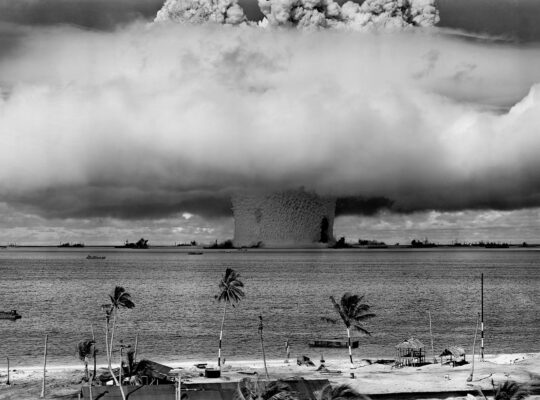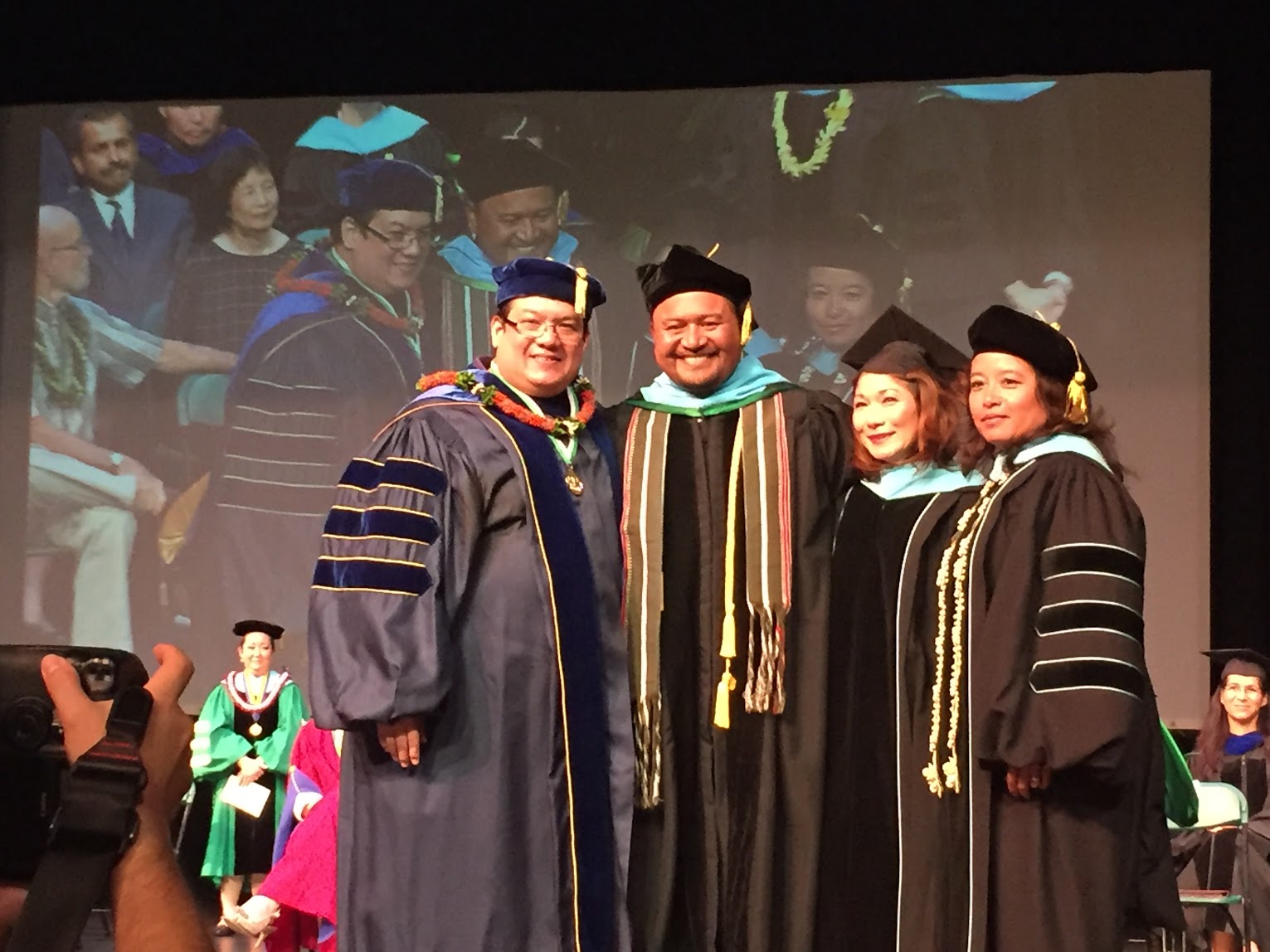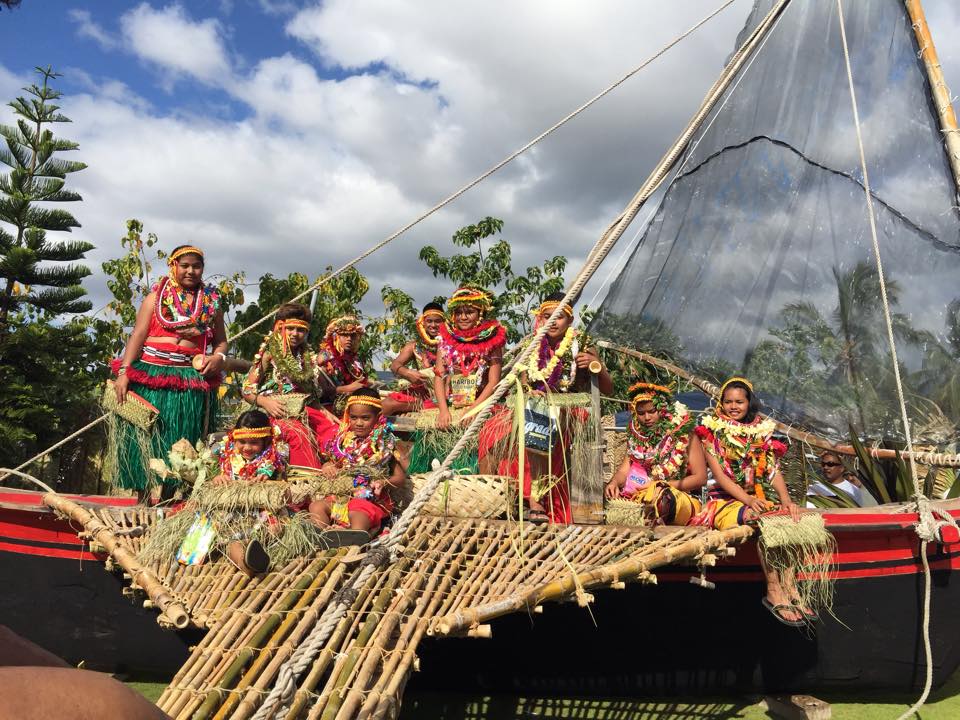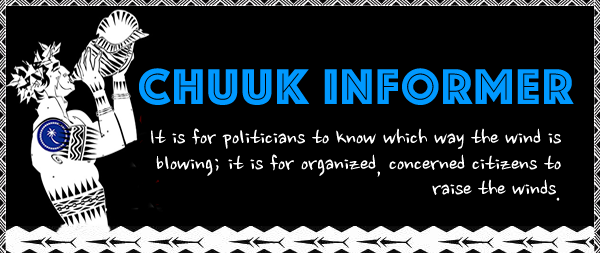
Iʻve been struck lately by the difficult task of trying to be a truth seeker as the founder of the Chuuk Reform Movement (CRM). In its simplest form, the CRM is nothing more than a virtual way to inform the Chuukese youth at home and overseas about news from back home. But it has increasingly become a way to inspire civic engagement for our youth for political issues that potentially impacts their future. Thatʻs a harder and often lonely task because being a leader for justice requires the embracing of solitude.
Maybe my brother Urupulo knew something I didnʻt fully understand when he gave me the traditional name Rapipon in the late 90ʻs. Rapipon means embracing emptiness. As my great and wise brother and father figure explained to me, it is the idea of being OK to stand alone as a leader.
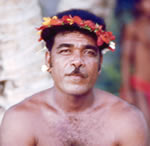 Urupwulo knew what it meant to embrace the loneliness of leadership. After all, he was a humble pwo navigator, a contemporary of my more well known uncle Mau Piailug. In their roles as elders and traditional leaders they were the quietest in the community. Our elders spoke only when absolutely necessary and often only when invited to speak.
Urupwulo knew what it meant to embrace the loneliness of leadership. After all, he was a humble pwo navigator, a contemporary of my more well known uncle Mau Piailug. In their roles as elders and traditional leaders they were the quietest in the community. Our elders spoke only when absolutely necessary and often only when invited to speak.
Silence is a virtue in our traditional fanapi island cultures. The more you know the least you speak. One gains respect not by speaking louder or often but rather by oneʻs humble and respectful treatment of others. Silence honors the wisdom of others.
 At the time he gave me my traditional name I was midway through a 13-year Jesuit scholastic training to become the first Chuukese Jesuit priest. I had already spend a good part of my adult life away from my home island getting a college education in Guam, a 2-year Jesuit novitiate training in Palau, another 2-year graduate philosophy studies in New York City, and was teaching the best and brightest Micronesian kids at Xavier High School, the premiere college preparatory school in the region. I was learning to become a leader in the Church, of people and ideologies.
At the time he gave me my traditional name I was midway through a 13-year Jesuit scholastic training to become the first Chuukese Jesuit priest. I had already spend a good part of my adult life away from my home island getting a college education in Guam, a 2-year Jesuit novitiate training in Palau, another 2-year graduate philosophy studies in New York City, and was teaching the best and brightest Micronesian kids at Xavier High School, the premiere college preparatory school in the region. I was learning to become a leader in the Church, of people and ideologies.
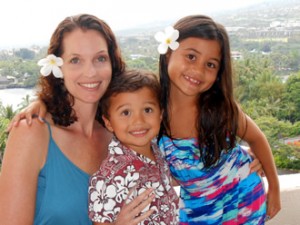 I have since left the Jesuit formation after 10 years in it, gotten married, and raising two kids. But the Jesuit formation in social justice has remained deeply ingrained in my humanity. At times my indigenous value of silence runs counter to my Jesuit training in social justice. I feel torn between the respectability of silence and the courageous responsibility of speaking out loudly against the oppressiveness of political greed in our governments in Chuuk State and the Federated States of Micronesia.
I have since left the Jesuit formation after 10 years in it, gotten married, and raising two kids. But the Jesuit formation in social justice has remained deeply ingrained in my humanity. At times my indigenous value of silence runs counter to my Jesuit training in social justice. I feel torn between the respectability of silence and the courageous responsibility of speaking out loudly against the oppressiveness of political greed in our governments in Chuuk State and the Federated States of Micronesia.
 Today I live in the United States as Vidalino Raatior the Pacific-focused educator, doctoral student, consultant, social entrepreneur, director, blogger. But in the silence of my humanity I am first and foremost Rapipon, the proud Chuukese, Micronesian, father, husband, brother, uncle, cousin, relative to others.
Today I live in the United States as Vidalino Raatior the Pacific-focused educator, doctoral student, consultant, social entrepreneur, director, blogger. But in the silence of my humanity I am first and foremost Rapipon, the proud Chuukese, Micronesian, father, husband, brother, uncle, cousin, relative to others.
It is within this latter self-understanding that I embrace my name and the wisdom of my brother Urupwulo who gave me my marching orders as an indigenous leader. I can silently feel the peopleʻs needs, but justice has a funny way of inviting courageous and often unpopular actions.
The hallmark of an indigenous leader is to embrace the solitude of leadership and alwayas act for the good of the community.
